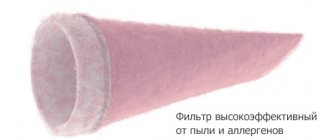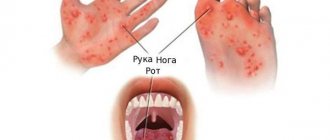Home>Articles>Allergy to alcohol
quick menu (hide)
- Prerequisites
- Innate Prerequisites
- First aid
- Alcohol-related allergens
- Acquired reaction to alcohol
- Symptoms
- Alcohol allergy treatment
- Prevention
- Diagnostics
More and more often, doctors are registering a disease such as an allergy to alcohol. How this reaction manifests itself is recorded in many reference books. Symptoms include hives, red spots and a rash.
The reason for its appearance may be:
- a huge supply of low-quality or “burnt” alcohol,
- drinking "excessively"
- general deterioration in the health of the population of our country and much more.
There are several other reasons that can provoke allergies.
Prerequisites for formation
Even experts in this field do not have a general opinion on whether a pure allergy to alcohol exists. Red spots may be the result of other diseases. Ethanol itself, in certain doses , is constantly produced by the body and does not cause any painful manifestations.
Scientists are inclined to believe that ethanol cannot be the cause of the development of a disease such as an allergy to alcohol. It is not the product itself that causes spots on the skin, but the dyes, flavors and sweeteners that even a branded product is filled with.
Ethanol
Separately, it is necessary to say about vodka. A small percentage of the general population is allergic to vodka, which, according to theory, consists only of ethanol and water.
What is causing the problem?
Pure alcohol is a powerful solvent. If it enters the bloodstream, it spreads throughout the body and penetrates the intestines. Ethanol causes strong permeability of the wall, which provokes the entry into the blood of incompletely broken down proteins from food. But not only proteins, but also toxins can enter the bloodstream and cause a strong negative reaction in the body.
There is also such a fact as individual intolerance to ethanol. Some people's bodies do not have a special enzyme that will help break down alcohol into acetaldehydes, and subsequently into water and acetic acid. The absence of enzymes provokes the endless movement of ethanol in the bloodstream, which causes severe poisoning of the entire body. This answer does not apply to allergies. Antihistamines will not help against it.
Innate Prerequisites
Congenital alcohol intolerance is very rare in its pure form. This is a genetic disease. The manifestation of an allergy is a reaction to ethanol, and not to the components of various drinks. That is why, when taking even small doses of alcohol, such people develop a severe reaction. Skin manifestations such as hives are not the only signs that an allergy to alcohol can manifest itself. Symptoms of a severe allergic reaction are:
- reaction of the bronchi and lungs, making breathing difficult ,
- severe nausea and vomiting,
- the temperature rises sharply ,
- anaphylactic shock,
- edema .
If medical assistance is delayed, the body’s reaction may become irreversible and the person will die.
What alcohol is dangerous for allergy sufferers?
The likelihood of developing an allergy increases rapidly when drinking alcohol with a large number of ingredients. And, on the contrary, one- or two-component drinks rarely provoke the appearance of spots on the skin, shortness of breath, or nausea. The least allergenic alcohol is made from grain crops - barley, rye, corn, rice. This is beer, ale, whiskey, sake without the addition of flavors and dyes. The only exception is wheat, used in the production of vodka and some whiskeys. It contains proteins that are the strongest allergens. The most common types of alcohol that :
- dry and fortified wines, brandy and cognac . Their production uses grapes saturated with polysaccharides, organic acids and other bioactive substances. Raw materials for cognac and brandy undergo multi-stage purification, so potential allergens are removed at each technological stage. Wine is produced by natural fermentation of grape juice, so that almost all allergens are preserved in it;
- tinctures with rowan, viburnum, black currant . Allergy symptoms after taking a portion of intoxicating drink are caused by one of the ingredients from the chemical composition of the berries. For example, if you are intolerant to rowan, there is a 100% chance that using a tincture from it will lead to urticaria or Quincke's edema;
- rum, tequila . To prepare these types of alcohol, exotic raw materials are used - sugar cane, condensed agave juice. A person who tries them for the first time can feel all the signs of an allergy, without even knowing about his intolerance.
But the honorable first place is occupied by alcoholic drinks with phytoextracts - concentrated extracts from plants. They are part of famous and popular liqueurs: Becherevka, Galliano, Sambuca, Absinthe. Amaretto contains almonds, Limoncello contains lemon, Baileys contains cream and chocolate. So allergy sufferers should carefully study the composition of the drink so as not to seek medical help after the first glass.
First aid
If a person has a strong and pronounced reaction that threatens the life and health of a person, then it is necessary to know what measures to take to save the person’s life (every fifth case of anaphylactic shock ends in death).
It is urgent to call an ambulance and clearly explain what happened. It is necessary that doctors understand that this is a case of anaphylactic shock and arrive immediately, and do not redirect the call to the emergency service, from which you can wait quite a long time for a doctor.
As first aid, a person must be given absorbents that will help eliminate ethanol breakdown products from the body, which can also cause allergies. If there are breathing difficulties, it is necessary to give the person bronchodilators, give him a massage and arrange to wait for the doctor in a comfortable semi-sitting position.
Alcohol-related allergens
If during a fun celebration a person suddenly develops an allergic reaction, then the following were quite capable of causing it:
- dessert, which includes cognac, liqueur or other aromatic or strong alcohol,
- barbecue meat that has been marinated in wine,
- wine sauces,
- any other dishes that were prepared using alcohol.
Medicines containing ethyl alcohol can cause a strong reaction Cosmetics that contain alcohol can also cause a reaction.
If a person has a genetically determined alcohol intolerance that causes a severe reaction, they should try to avoid ethanol in any form. It is necessary to take care of strong antihistamines, which you will always have to carry with you. When choosing cosmetics or hair dye, you must do an allergy test. This will avoid hospitalization and placement in the intensive care unit.
ethnoscience
Everything that is given by nature can and should be used. Even in the fight against an illness such as allergies. Can such a remedy be effective? Yes. However, everything is individual.
Before choosing traditional methods in the fight against allergies, you need to consult your doctor.
Mumiyo
Shilajit can help allergy sufferers in the fight against skin rashes and redness. To do this, you need to dilute 1 g of the product in water (100 ml), pre-heated and cooled. Once the solution is ready, the resulting mixture can be applied to the affected areas of the body.
Mumiyo can also be taken orally. For this you need 2 tsp. dilute in half a glass of water. This dosage is intended for an adult. To treat children under 5 years of age, 50 ml of this mixture will be required.
Egg shells
Another effective remedy in the fight against allergies is crushed egg shells. This “medicine” must be given to the patient at the tip of a spoon. If the taste of the shell is unpleasant, you can add a few drops of lemon juice to it.
Garlic
Garlic is not only a storehouse of vitamins, it is a folk remedy whose action is aimed at strengthening the patient’s body.
To prepare this kind of “medicine” you will need 1 clove of garlic and 2 tbsp. l. water. The vegetable must be chopped, and all that remains is to add water to the resulting pulp. The secret to preparing an allergy remedy is simple. The patient should take this paste 20 minutes before meals 3-4 times a day.
Acquired reaction to alcohol
This is the most common manifestation of an allergic reaction to ethanol. It is precisely associated with drinking low-quality alcohol. “Scorched” cognac or champagne cause an allergic reaction much more often than regular vodka or wine.
But it's not that simple. Even expensive alcoholic drinks may contain:
- pesticides
- or sulfur dioxide.
These substances are used when growing grapes and are sure to end up in the most expensive alcohol and can cause a severe allergic reaction.
Among other things, the following is added to low-quality alcoholic drinks:
- flavorings,
- flavorings
- or dyes can simply kill a person.
rarely in a person’s life , then he may not know how the allergy manifests itself. In this case, a red rash, itching and fever are attributed to rare foods and exotic dishes, and a headache is attributed to fatigue. Therefore, alcohol allergy is a problem that can be difficult to identify.
Vivid manifestations of allergies can be caused by teturam, which is dissolved in alcohol and given to a person without his knowledge. But these occurrences of an allergic reaction are only possible if a person suffers from alcoholism, does not want to be treated, and relatives decide to treat him without his knowledge.
Causes and triggers of allergies
It is extremely rare that ethanol intolerance is diagnosed for the first time in an adult. Ethyl alcohol is found in many medications, such as cough syrups. Therefore, an allergy to ethanol is detected in early childhood and becomes the reason for a subsequent sober lifestyle.
In adulthood, it develops in response to drinking drinks with organic or inorganic substances “unfamiliar” to the body. They are added to alcohol to improve the taste, smell, and give it a beautiful color. The release of histamine into the blood is especially often provoked by the following chemical compounds :
- sulfur dioxide is a preservative that inhibits bacterial processes, inhibits souring and fermentation;
- salicylates of natural origin , present in raw materials for the production of beer, wine, vodka;
- sulfites are fermentation products used to preserve bottled alcoholic beverages.
The concentration of these substances is small, but it is enough to trigger an aggressive response from the immune system. It is impossible to purchase a drink without salicylates and sulfites. They are already contained in raw materials or synthesized during the production process. Even in homemade young dry wine these natural preservatives are found.
Symptoms
The skin reaction manifests itself as a rash that resembles blisters, filled with clear liquid, causing severe itching or itchy red spots that are not clearly localized. Rashes appear a few minutes after alcohol enters the body.
After drinking alcohol, the following appear:
- stomach ache,
- nausea and vomiting,
- labored breathing,
- redness of mucous membranes,
- severe thirst and dry mouth.
An allergic reaction can manifest itself as rapid intoxication even if a small amount of alcohol is consumed. A person may develop heart problems - tachycardia, sudden jumps in blood pressure.
In this case, assistance should be provided as soon as possible. Before the doctors arrive, you need to drink absorbents.
Allergy to alcohol. Treatment
Sorbents are universal means that help not only in case of poisoning, but also in allergic reactions. If a person knows that he is allergic to alcohol, then he should avoid drinking it in every possible way. In any case, guests must take sorbents before eating or drinking alcohol. But taking sorbents is only one way to treat an allergic reaction.
Doctors are often asked the question of how to get rid of a reaction to alcohol. Treatment for an allergic reaction to alcohol can be expensive and time-consuming. Allergy is a disease that cannot be completely eliminated. You can only make it easier.
It is not difficult to eliminate symptoms in the form of itching, blisters, and red spots. But it is impossible to get rid of the release of histamine and prostaglandin into the blood. You can use traditional methods - baths made from medicinal herbs:
- daisies,
- sage,
- valerian,
- successions.
Also, ointments and other medications offered by pharmacies will help against rashes and irritation.
What is an allergy?
Briefly about the mysterious and little-studied phenomenon called allergy. We will return to its alcoholic variety later. Translated from the language of Aristotle, “allergy” means another action. That is, in our case, an unusual reaction of the body to a particular substance. Moreover, doctors imply a strange reaction of the immune system. In fact, there is an incorrect internal resistance to foreign organisms and the products of their vital activity.
Nature has given every person protection from antigens (foreign proteins). But sometimes your own mutated protein becomes the “enemy”. Immunity is difficult to test. He has many “spies” and cordons for antigens, allowing him to recognize who is his own and who is a stranger, and, if necessary, destroy (block). We will not go into detail about the “dangerous and difficult service” of T-lymphocytes, which destroy hostile infections at the cellular level and protect against a number of other diseases.
The allergic reaction is comparable to the situation when an atomic bomb is used instead of a grenade launcher to destroy an enemy group. Alas, to this day many doctors confuse it with an autoimmune reaction, when there was no enemy, the immunity simply “revealed itself.”
Preventive measures
- A person who is allergic to alcohol always thinks about not ruining the holiday for others. To make the feast fun and painless, you need to take care of purchasing licensed alcohol. If you want to save money, you should not count on the excellent quality of the product offered. The label, which states that the alcohol was made only from natural ingredients, may simply be lying.
- When it comes to alcohol, the rule must be strictly observed - quality should always prevail over quantity. It's better to drink a small amount of quality alcohol than risk ending up in a hospital bed.
- If there is a suspicion of an allergy to alcohol, a person should carefully monitor his/her well-being in order to take timely measures. If there is a new type of alcohol on the table, then it is better to refuse it than to risk your own health or life.
- A person suffering from allergies must take medication before touching a glass.
- At the first signs of an allergic reaction, you need to take medication and consult a doctor.
What is better NOT to drink?
Photo: shadesofflorence / freepik.com
In addition, those who are aware of their allergy to almonds should avoid certain types of liqueur and mulled wine. And “experienced” beer fans run the risk of developing sensitization to barley gluten. Behind this dry, unpronounceable medical term lies arthritis, colitis with diarrhea, and an incomprehensible rash all over the body.
Photo: asmedvednikov / freepik.com
Both beer and vodka and even pure alcohol disrupt the permeability of the intestinal wall. With its “fall,” hordes of microbial toxins, jubilantly, rush into the blood. And finally, alcohol hits the pancreas. And in its jurisdiction - the digestion of foreign proteins for future ones. Can you guess why this is risky? After all, we talked about proteins and immunity above.










